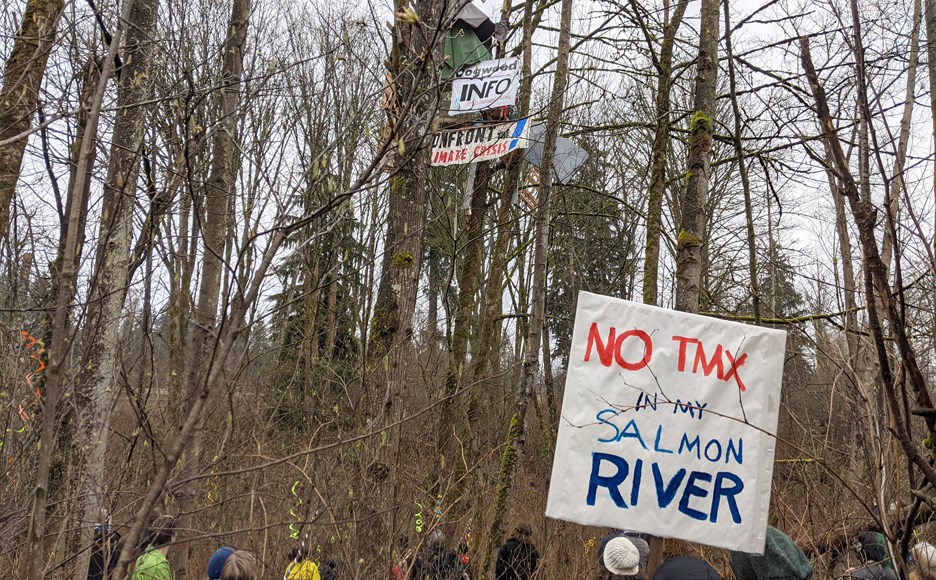A federal regulator has lifted a stop-work order on tree cutting and grass mowing along the Trans Mountain pipeline expansion project route, including in Burnaby.
Trans Mountain has now submitted a satisfactory plan to correct deficiencies in the oversight of its contractors that could pose threats to nesting birds, the Canada Energy Regulator said Tuesday in a statement.
The regulator, which enforces safety and environmental guidelines for pipeline projects, issued a stop-work order on June 3 following investigations of tree-clearing work in the suburban Vancouver area that could have impacted nesting birds.
People trying to stop the cutting of more than 1,300 trees in Burnaby along the Burnette River, south of Highway 1 and west of North Road, slammed the CER decision.
“Bad news from the petro-state trying to accelerate mass extinction,” tweeted the @1308Trees Twitter account. “Shame on the Colonial Energy ‘Regulator’ (CER) for rushing to kill thousands of trees along the #TMX pipeline route.”
Multiple protests have been held in recent months in an attempt to block or slow the cutting of trees in this area.
The regulator's website outlines four incidents along the pipeline route in the Burnaby and Coquitlam areas and near Agassiz in the Fraser Valley that date back to early April when a member of the public complained about bird nest destruction and improper buffer zones.
It also investigated tree-felling work near Agassiz that destroyed a robin's nest despite the area being marked by flags as a no-cutting zone.
The regulator says the stop-work order was issued after Trans Mountain reported to it on June 2 that one of its contractor crews cleared trees and shrubs in Burnaby without company authority.
No damaged or destroyed bird nests were reported in the June 2 incident, says the regulator.
"The order requires Trans Mountain to investigate and find the root cause for why there were two incidents related to contractor oversight issues in May," the regulator said in its order.
"Trans Mountain must also be able to prove that work is being done in a way that protects the environment, and more specifically, that workers are following Trans Mountain's own procedures and mitigation practices to protect the environment and migratory birds."
The regulator says Trans Mountain's plans now include improving field procedures to protect nesting birds and increasing direct supervision of its contractors.
Trans Mountain said in a statement on Tuesday the plan it filed to the regulator includes implementing enhanced communication, supervision and training measures before restarting pipeline clearing work.
The $12.6-billion expansion project between Burnaby, B.C., and north of Edmonton will triple existing pipeline capacity to about 890,000 barrels per day of oil products, including diluted bitumen, lighter crude and refined fuel.
- With files from the Canadian Press



